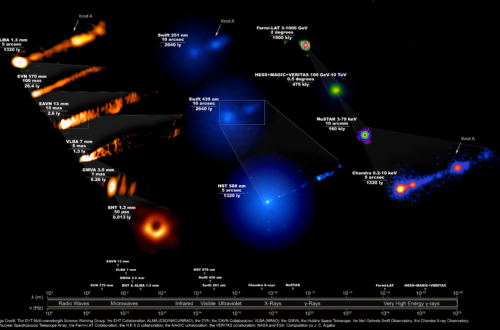(warning, very long post!!)
I hope those of you reading our blog enjoy hearing all about the great research we are doing, led by amazing young researchers! This post is a bit different, but equally important, about the toll that academic life can have if we’re not careful about self-care. Overwork is something I still struggle with, and because it is such a common theme I thought I would post about something that happened to me this past week.
As you can maybe glean from Tobi’s blog about our group retreat last month, I try to be open with my group about the trials and travails of academia, including my own, so they can learn from my mistakes as well as from my successes. It didn’t used to be that way. In the first incarnation of my group I tried hard to present a “perfect” front, because that is what I thought was expected of group leaders. I thought they needed to see that I was strong and unassailable, and in particular as a woman in a male-dominated field I have always been aware that I am under more scrutiny, so there is the additional pressure of trying very hard not to fall into some stereotypes people may have about women being less capable. Sadly from stories in the news (Summers, Prumia etc.), we know that this view is still very much alive and well in many circles. But then I read an article (I wish I could remember the link, if anyone knows please comment!) about a study in which some female group leaders were actually deterring their female students and postdocs because they seemed too perfect, that young women couldn’t recognise themselves and their doubts and struggles, and ended up feeling less able to succeed in academia. I have to assume this effect extends to people of all genders but the study focused on women. Anyway, that article really hit home with me, and I started trying to open up more about my struggles in my group meetings, this was probably about 5-6 years ago. I still always worry that being too honest may discourage people from trying, but I’ve generally hoped that the pros of openly discussing such things outweigh the cons, and lead to a better work environment for everyone.
So in that spirit I want to share an experience that just happened to me this past week, because quite honestly my first inclination would be to hide it out of shame and embarrassment. Why? Because I showed serious weakness in public, which is a complete anathema to me just because of the pressure I always feel to be seen as strong and capable. The story has to do with work stress and overwork, and the way that academic jobs can sometimes make time management very challenging. What often happens is I get asked sometimes a year in advance about attending a conference, often one I help organise, so this goes in the agenda at a time that looks very clear. Then someone asks me to come give a talk and do a research visit, so I look at the calendar and see there’s a conference that month, and I see I can space things out and say “sure”, and schedule that visit for a few weeks before the conference. But then as the year progresses, new requests come in, my schedule gets increasingly full, yet there are always new invitations to give talks or attend conferences, and there’s a lot of pressure to say yes to at least some of these. Partly I say yes because it’s always scientifically stimulating to visit another active research institute, hear what people are doing, and often I will have collaborators there so it is a good chance to get some work done, or start a new project. But also a very important part of what group leaders do is promote the research of our students and postdocs, who are edging towards the job market, and we do that during such talks/visits. So as of this summer I had a pretty full but doable autumn, but then a critical collaboration meeting for one of my projects (The Event Horizon Telescope) was added rather late to the mix and that is not something I could skip, filling in a week I had planned to use for regular work and recuperation. And then something that was totally my fault also happened, which is that every year I get asked to write literally ~100 letters of recommendation or in support of tenure/promotion cases. These almost always have to be done in the fall and yet literally every year I am somewhat in denial of how much work it is, and I do not block the time in my agenda as I should. I just figure I can work on these things in between the other stuff (wrong!!). But then add in the normal work load that needs to happen at the same time all the other things are going on, and suddenly there is a period of work intensity that is barely maintainable.
I think most academics will read this and recognise it immediately. Despite our best efforts, and promises to do better, we sometimes end up with impossible workloads for short sprints of time. And we count on our adrenaline, and the fact that there is an end date to it all, to pull through. In my case, this intense period was longer than the usual sprint: I had 6 talks in 5 weeks, and for each one a new talk that had to be prepared. Then there were wildcard elements that included living out of a suitcase away from home because of renovations, and being contacted about new sexual harassment cases in our field (yep, never seems to end…) plus several other conflicts popping up between colleagues in my collaborations and at work. I care deeply about these issues so these affected my equilibrium at a time when there wasn’t energy to spare, and they also take time away from the other deadlines. Anyway…the end effect was that this past week I was literally running on fumes, with cumulative lack of sleep and exhaustion, just trying to make it through the final deadlines before this weekend. I’ve done it before, goes the thinking, so I can do it again, it’s almost over. And there were warning signs like my sleeping through my alarm twice during the week, something I never do since I tend to be a light sleeper. But on Friday I was supposed to give a talk promoting the Cherenkov Telescope Array, my other telescope project besides EHT, to the Dutch community. I was representing a team of people, and although I was exhausted, this was something I needed to do, people were counting on me and anyway it should have been relatively low stress. But somehow, this being the final thing on the list after weeks of nonstop work, I think my body was just done with it all. I have low blood pressure so it’s not uncommon for me to get dizzy spells, but I can usually power through. But on Friday I got up to give my talk, and basically started speaking, then got a bit dizzy, and this time I couldn’t push through. I tried to keep talking, realised I couldn’t remember what I was saying, and literally thought I was going to pass out! I ended up having to sit out for a few minutes while my brave colleague from CTA Jacco Vink had to jump up and take over for me unexpectedly. Then it passed and I did manage to get up and finish the talk, though it was probably not my best work. However, I felt, and I still feel, absolutely appalled at having such a thing happen when giving a talk in front of a room of colleagues, and basically making a spectacle of myself. It’s my equivalent of the stress dream where you have to give a talk either unprepared or naked (or both)! And I’ve been beating myself up over it all weekend, to which my husband has been reminding me that I should be less worried about them and more worried about myself, however this sort of thing really taps into the deep insecurities and ‘stereotype threat’ that I often feel as a woman in science. That even after all this time, if I show weakness in public I am going to be seen as “just another incapable woman”. And people can laugh and say that’s ridiculous at this stage of my career, but when people like Strumia are still getting a lot of support from scientific colleagues, it is hard to feel that I am not representing my entire gender, each and every time I get up on that stage.
So I decided that instead of hiding my feelings of shame and embarrassment, I would do what feels the most uncomfortable and write about it publicly! Because even though my subconscious clearly thinks I should be ashamed, the people around me tell me I am being too hard on myself and I’m self aware enough to know that is generally the case. And I think it is important to talk openly about the fact that sometimes we drive ourselves too hard, and I want my students and postdocs to do better and learn from my mistakes. This type of story is not uncommon. In fact, over the last weeks of travels I heard similar stories from three male colleagues, one of whom suffered extreme burnout and had to take several months off, and two who literally ended up in the hospital because of stress related health problems. The irony is that I thought they were nuts to push themselves that hard and yet now, here I am.
Anyway, the good news is that after 14 (!) hours of sleep Friday night and another 9 hours last night, I feel human again. But it is definitely food for thought, for myself and for us as a field, to think about the human costs of trying to be ‘successful’ academics all the time.
Finally…very apropos that my friend Bryan Gaensler started a thread on Twitter the same day (Friday) about the worst ever experiences giving talks! It has some great horror stories to compete with my own, and even made me laugh, so it couldn’t have come at a better time!



